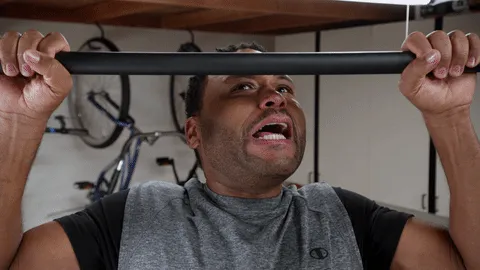
If you are exercising in a gym, and the results are not what it should be, one of the reasons might be what you follow the bad advice. We live in a time where we are overwhelmed with information, and in that crowd it's easy to 'find' those that are not accurate or do not comply with the latest research. We bring you the conclusions of the latest research conducted at several world universities.
1.The more you sweat you spend more calories!?
If your shirt is soaked with sweat after training, it does not necessarily mean you have spent more calories. Sweating is the natural reaction of the body for cooling the skin and controlling the internal temperature. It can be an indicator of a heated hall, hot weather or just your physiology.
Comment by Branimir Vajda of Fitness Home Collum: "The environment as well as the physiology of each individual affects the amount of sweating, the body's hydration and psychological state also play a significant role. are not indicative. "
2.Running is bad for knees!?

The study at Stanford revealed that the knees of older ages who were running regularly were no less healthy than those who did not run. However, the same study has shown that women four to six times more exposed to knee injuries than men because of the more pronounced imbalance between the quadriceps and the lower back flap, which can increase the risk of injury. So, if you are running, experts recommend doing twice-a-week exercise to strengthen the knee muscles.
3.Stretching will help the body recover faster!?
Another study, conducted at the University of Milan, showed that stretching as a muscle recovery method after training did not show significant changes in the blood lactate level (which measures the level of muscular fatigue). However, although stretching can not completely reduce the pain of the muscles or lead to their complete recovery, the razor advantageously affects the concreteness of the joints and is therefore recommended.
4.You need to sweat for 45 minutes to benefit from health!?
If you only have half an hour a day or 10 minutes of exercise, it is enough to improve your cardiovascular system. More and more studies have demonstrated the effectiveness of short training, and some research suggests that such an exercise might be more effective. The research carried out at Arizona State University, published last year, showed that people who had their 30-minute walk divided into three segments of regularly measured lower blood pressure. This amount and way of action can be enough if you want to stay in shape, but if you're trying to lose weight on a weekly basis, your activity needs to be more lengthy. If you want to lose weight, you need to spend at least 250 minutes a week at training.
5.More exercise gives more results!?

Ashley Borden, a coach of famous Los Angeles people, says that the body need time for recovery after exercise. He said that in the case of daily training there is a greater chance of injuries and excessive training, which does not affect the appearance of the body. This also applies to recreational practitioners, so it is important that you are doing a break or exercising every other day, and 'serious' exercises should take a break at least once a week.